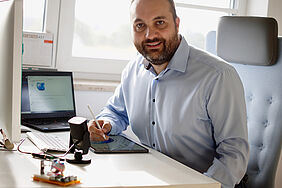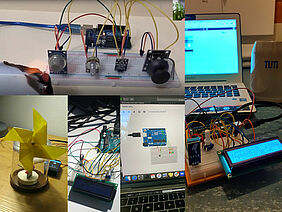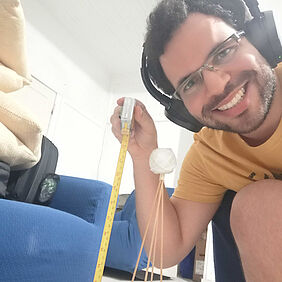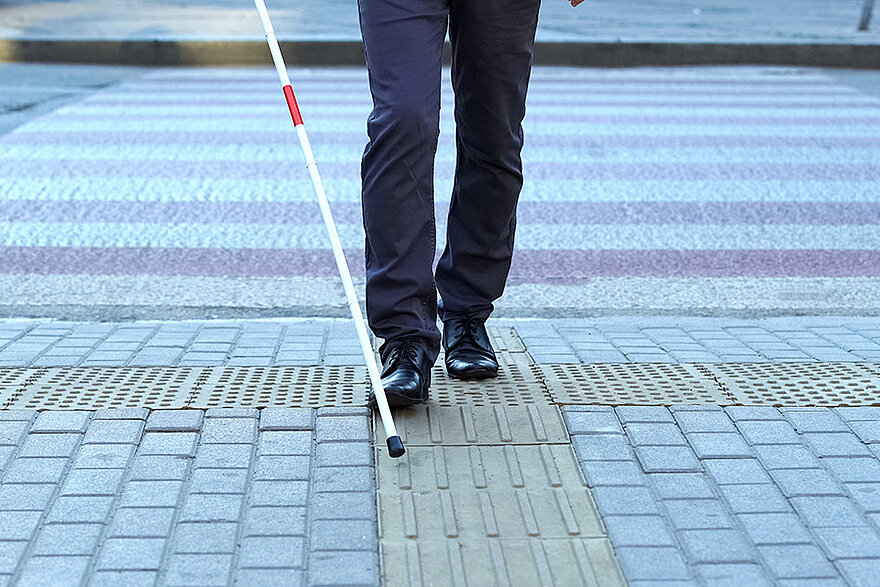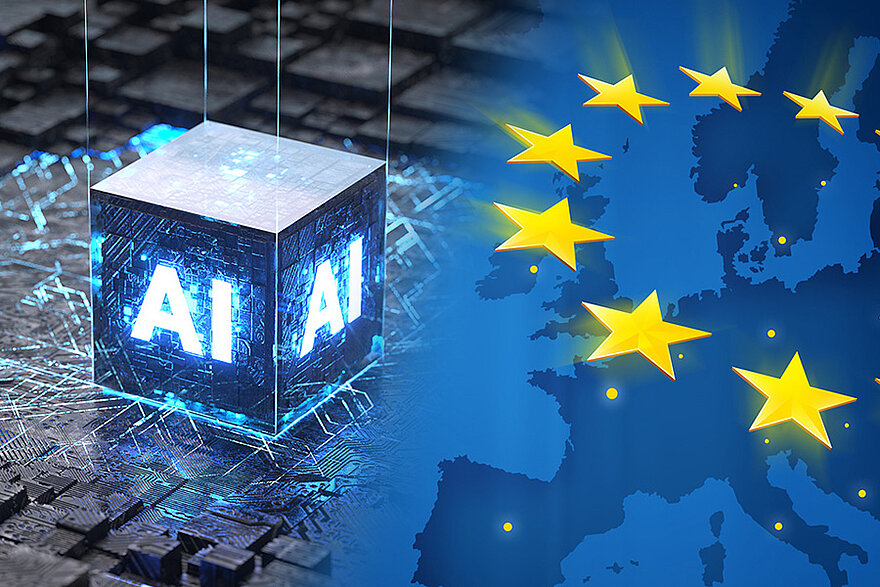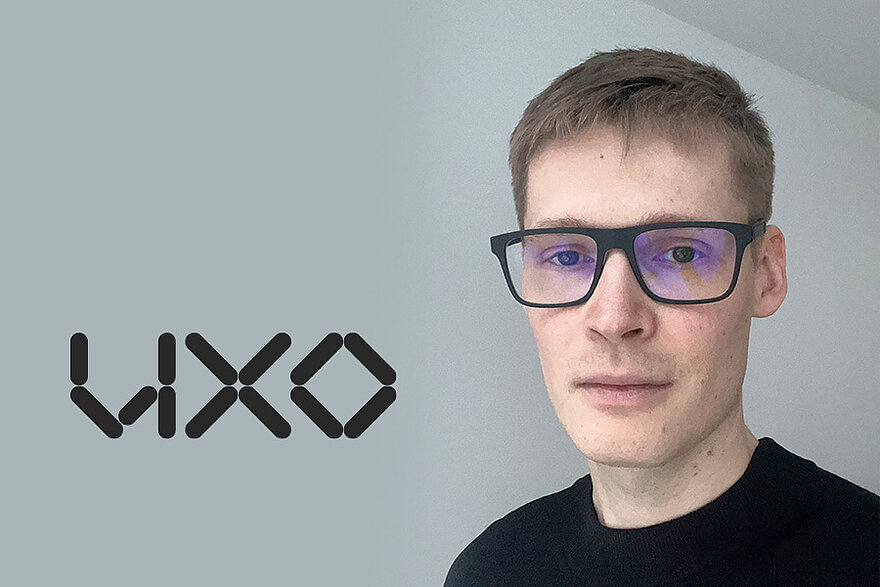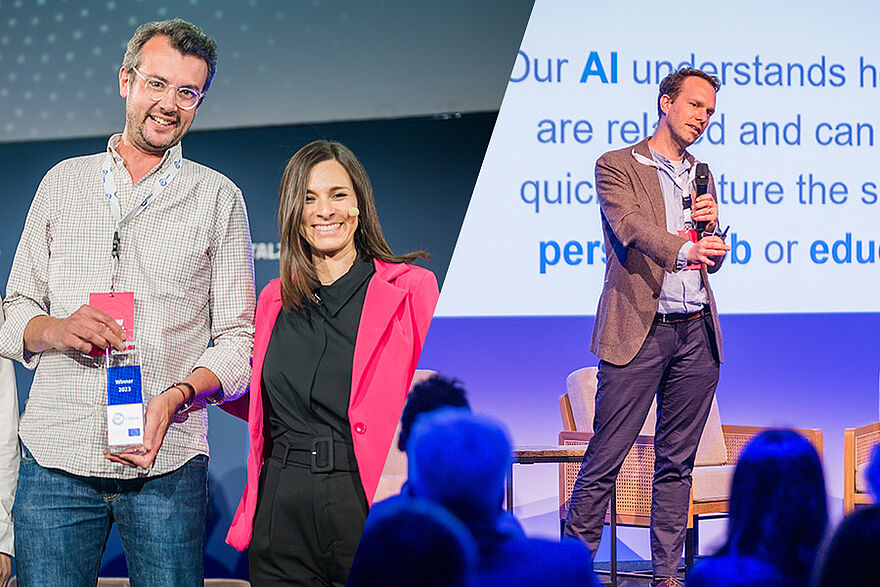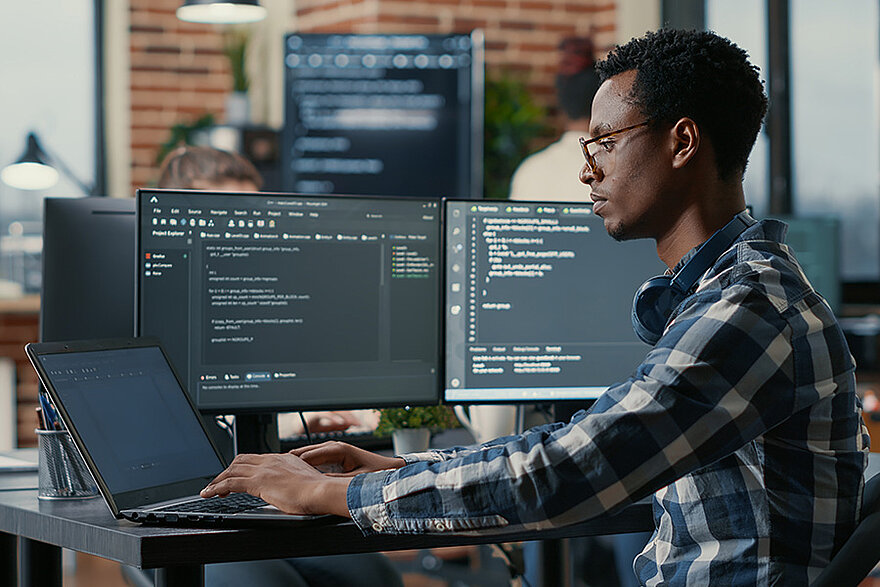The EIT Digital Summer School is a unique education concept that blends an intensive learning journey and industry case challenges with a rich cultural experience at 14 host universities. The COVID-19 pandemic however turned everything upside down. All 14 summer schools on digital focus areas in different European cities had to be held online. This is a case study on how that evolved in Munich.
Hosting a summer school completely online, all of a sudden, leaves the organisers with some challenges, says Dr. Markus Böhm of the Technical University of Munich (TUM). Nevertheless, he and his team, Rob Jago Flötgen, Timo Böttcher, Lukas Daßler and David Soto Setzke from the Chair for Information Systems (Prof. Krcmar), enthusiastically managed to design a 2-week virtual summer school experience comparable to that of a real summer school.
Preparations
Dr. Böhm: “Our biggest challenge was to account for the vast time difference of our students as well as to keep them engaged throughout the two weeks by applying a rich blend of teaching formats.”
The team addressed this by structuring the agenda in a way that students from different time zones had the chance to follow the summer school. There were live lectures in the morning (Munich time) that were also recorded, followed by interactive workshop sessions using Zoom breakout rooms until the early afternoon. The day closed with pre-recorded tutorials, self-study material or free working time. This allowed the students to fit the summer school into their time zones. Slack channels allowed the lecturers, coaches and students to communicate throughout day and night.
TUM was responsible for the EIT Digital Summer School on IoT platforms for Industry 4.0. Here, 30 master and doctoral students from 15 different countries around the globe had signed up. “To our surprise, instead of watching the recorded lectures and solely relying on asynchronous team communication, the students were closely involved and even adapted to Munich local time to get the full experience of our summer school”, Soto Setzke summarised the great commitment of the students. For EIT Digital Master School student (Autonomous Systems) Wilfredo Robinson from Panama this meant for example working through most of the night, turning his daily routines upside down.
Learning Objectives
An integral learning objective of the Munich summer school was to teach the students how to develop their own IoT device using Arduino microcontrollers and connect them to one of the leading Industrial IoT platforms: Siemens MindSphere. This was offered as a specific programme in addition to the industry keynote speeches and innovation and entrepreneurship (I&E) lectures that accompanied the Business Cases.
Dr. Böhm: “As a unique offering of TUM’s summer school, we wanted to enable our students to identify, prototype and evaluate relevant industrial IoT use cases and – probably with some more exercise – actually implement them in an industry setting”.
To accomplish this, the students were equipped with Arduino microcontrollers and a set of sensors that were shipped to them before the summer school started. During the summer school, the students got a video tutorial and coaching sessions to learn the foundations of microcontroller programming accompanied by the challenge to build a creative room-monitoring device within 12 hours.
Dr. Fabian Rhein and Peter Schopf from Siemens introduced the students to connecting their sensor devices to the MindSphere IoT platform and develop an app and some business logic on the Low-Code platform Mendix. Schopf said “I am really impressed how quick the students can develop and run an app that, through the MindSphere platform, connects to different sensor devices. This is perfect for demonstrating your use case and pitching it to your boss, even for people with very limited time for the application development.”
Business Cases
Similar to the regular EIT Digital Summer School, the students had to apply a structured problem-solving approach to develop, prototype and evaluate creative ideas for real-life industry problems from EIT Digital partners. But this time, they had the additional challenge of collaborating virtually in a distributed team. To support this, workshop sessions where held to give the students a 10 - 15 minutes instruction on what they could do to analyse the problem, followed by a 75 minute breakout session to develop a common understanding of the task, work on the problem and eventually assign responsibilities for sub-tasks during the free working time. Dr. Böhm: “In this way we taught the students how they can break down a large problem into individual analytical tasks and how to run efficient and effective virtual meetings. I think this is a unique learning outcome of a virtual summer school, one that might become valuable in our students’ business life”.
EIT Digital partner Siemens challenged the students to fight carbon emissions and other greenhouse gases. The students developed the concept of a market platform for incentivising companies to share their emission data by establishing a trusted market that is backed through sensor devices and distributed ledger technology. EOS, an industrial 3D-printing specialist, presented a challenge to leverage distributed manufacturing of medical parts. The students analysed the current value chain and came up with an ecosystem concept that would bring distributed manufacturing to the next level, by ensuring intellectual property rights for all actors. Intel and MicroStep challenged the participants to reduce production downtimes that are for example due to faulty parts or workplace safety incidents. One student team applied machine learning approaches for detecting faulty parts and another team worked on a sensor-based alert system to improve workers’ safety around autonomous machines.
Flötgen (I&E coach) added, “in addition to all this, we offered our students a virtual factory tour streamed exclusively and live from the Audi factory in Ingolstadt.”
Cultural Experience
What fascinated the students the most, was the mixture between online lectures, interactive workshops, practitioner keynotes and a virtual cultural programme of Munich and Bavaria, as comes clear from their feedback.
The organisers surprised the students every evening with a virtual cultural experience of Munich and Bavaria. The organizers curated videos and accompanied them with insider information from the locals. According to Böttcher (I&E coach) this was “a great way to show the students our personal view on the area. From the native born Munichan, or the country bumpkin of the Bavarian countryside to recent inhabitants of Munich”. Daßler (I&E coach) adds, “We also included a tutorial on how to dance ‘Schuhplattler’, a Bavarian folkdance, and included a cooking challenge for a traditional Bavarian Dinner”.
Pitch Presentations
The summer school ended with the pitch presentations of the students, in front of a jury of academics and industry professionals. To account for potential technical problems, the pitches were delivered as pre-recorded videos and followed up by a videoconference for the Q&A session. Dr. Tobias Riasanow (member of the Jury from SAP Labs Munich) concluded, “It is impressive to see the creative solution approaches and professional presentations of the students. And, not to forget, how much motivated teams can achieve in just two weeks, virtually”.
